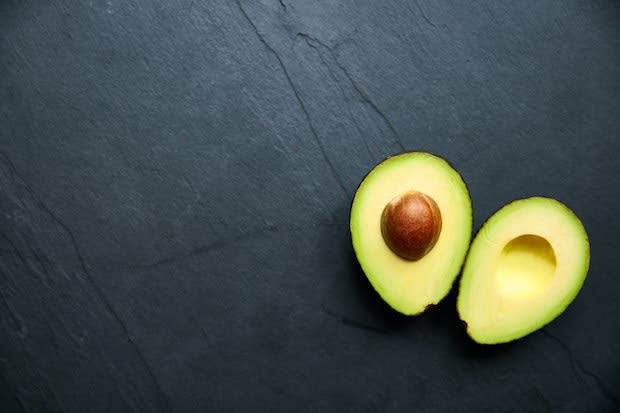Table of Contents
I. Eating to Your Heart’s Content
a. Avoiding Saturated and Trans Fats
II. Increasing Your Physical Activity
IV. Checking Your Cholesterol Levels
Maintaining a healthy cholesterol level is essential for many reasons. A healthy cholesterol level can reduce your risk of heart attacks and stroke. The right amount of cholesterol is also essential for building cell membranes in the body and producing substances like vitamin D and hormones. [1]
When your cholesterol levels get too high, your doctor will likely prescribe Lipitor (Atorvastatin) or Zetia (Ezetimibe). Medications can help bring your levels down, but it is always best if you can avoid complications naturally. Read on to learn how eating heart-healthy foods, staying active, and abstaining from alcohol can maintain and improve your cholesterol.
Eating to Your Heart’s Content
High cholesterol can heavily impact heart health. For this reason, eating foods that are good for your heart should be a priority. The following changes to your diet may improve your heart health.
a. Avoiding Saturated and Trans Fats
Saturated fat increases your cholesterol and should be avoided. Saturated fat is primarily found in red meat and full-fat dairy products. When it comes to cholesterol, high-density lipoprotein (HDL) cholesterol is preferred over low-density lipoprotein (LDL). Saturated fats increase LDL, building up plaque in your arteries and increasing your risk of complications.
Trans fat is similarly bad for your health. When reading food packages, look out for trans fats that are masked under the ingredient “partially hydrogenated vegetable oil.” Typically, cookies, crackers, cakes, and other foods that use margarine will contain this ingredient. Trans fats increase your total cholesterol levels and have since been banned in the U.S. in 2021 because they are a risk to the health of American citizens. [2] Your intestines have beneficial bacteria called probiotics that thrive on soluble fiber. Probiotics are vital for maintaining healthy levels of cholesterol because they reduce LDL by lowering the amount of cholesterol that is absorbed into your bloodstream. [3] Adding foods such as oatmeal, brussels sprouts, apples, pears, and kidney beans to your diet will up your intake of soluble fiber. [2] Polyunsaturated fats have multiple double bonds, which simply means that they reduce LDL cholesterol and decrease the risk of heart problems. [3] Omega-3 fatty acids are one of the best polyunsaturated fats to consume because they have been shown to reduce triglycerides, lower blood pressure, and prevent plaque build-up in arteries. Controlling these factors may lower your chance of heart disease. [4] Some foods that are rich in omega-3 fatty acids include salmon, herring, mackerel, walnuts, and flaxseed. [2] Some have tried to lower harmful LDL levels by simply going on a low-fat diet. One study showed that this is not necessarily beneficial because it lowers LDL but also reduces HDL cholesterol that your body needs. This is where monounsaturated fats come in. Because of their double chemical bond, monounsaturated fats are able to reduce LDL while protecting higher levels of beneficial HDL. Monounsaturated fats have been found to reduce the oxidation of lipoproteins, essentially keeping your arteries clearer and healthier. Olives, olive oil, almonds, hazelnuts, cashews, and avocados are some foods that provide monounsaturated fats. [3] Losing weight and combating obesity can cause your body to produce less new cholesterol while increasing the amount of healthy HDL cholesterol you absorb. [3] Along with a healthy diet, regular exercise can help you achieve optimal heart health. Talk to your doctor about how much physical activity is right for you. Generally, a healthy person will benefit from 30 minutes of daily aerobic activity. Taking up a sport, riding your bike, or a brisk lunch hour walk are all great starting points. [2] Moderate consumption of alcohol has been associated with an increase in HDL cholesterol. Sounds great, right? Yes, but the benefits are not strong enough to recommend alcohol to those who do not already drink. Too much alcohol can lead to serious health problems like heart failure, stroke, and high blood pressure, so drink in moderation. The rule of thumb for healthy adults is one drink a day for women and up to two drinks a day for men. Over the age of 65, men may want to tone it down to one drink a day. [2] While making lifestyle changes, it can be helpful to check your cholesterol levels regularly. Talking to your doctor and getting feedback will let you know if your efforts are reaping results. Changes like losing weight, cutting down on alcohol, and abstaining from smoking can take time to take effect, so don’t lose heart if there isn’t an improvement right away. High cholesterol has no obvious symptoms, so tests are usually necessary to detect it early. The content in this article is intended for informational purposes only. This website does not provide medical advice. In all circumstances, you should always seek the advice of your physician and/or other qualified health professionals(s) for drug, medical condition, or treatment advice. The content provided on this website is not a substitute for professional medical advice, diagnosis, or treatment.
b. Eating Soluble Fiber
c. Polyunsaturated Fats
d. Monounsaturated Fats

Increasing Your Physical Activity
What About Alcohol?

Checking Your Cholesterol Levels
